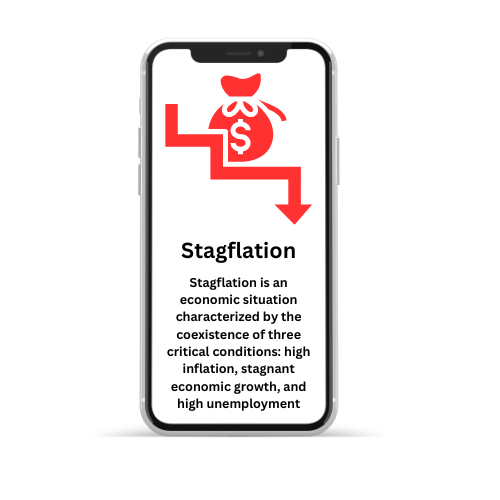Equity derivatives are financial instruments whose value is derived from the performance of underlying equity securities, such as stocks or stock indices. Common types of equity derivatives include options, futures, and swaps, which allow investors to hedge risks, speculate on price movements, or enhance returns. These instruments enable market participants to gain exposure to equity markets without directly owning the underlying assets. Equity derivatives play a crucial role in modern financial markets, providing liquidity and flexibility for traders and investors while also serving as tools for managing portfolio risks and achieving specific investment strategies.
What is Equity Derivatives
Equity derivatives are financial contracts whose value is derived from the performance of underlying equity instruments, primarily stocks or stock indices. They provide investors and traders with the ability to manage risk, speculate on price movements, or enhance investment returns without directly owning the underlying securities. Common forms of equity derivatives include options, futures, and swaps.
Types of Equity Derivatives
Equity derivatives come in various forms, each serving different purposes and strategies:
- Equity Options: These are contracts that give the holder the right, but not the obligation, to buy (call option) or sell (put option) a specified amount of an underlying stock at a predetermined price (strike price) before or on a specific expiration date. Options can be used for hedging or speculation.
- Equity Futures: Futures contracts are agreements to buy or sell a specified quantity of an underlying equity or stock index at a predetermined price on a future date. Futures are standardized contracts traded on exchanges, providing liquidity and transparency.
- Equity Swaps: An equity swap is a contract where two parties exchange cash flows based on the performance of underlying equities or equity indices. One party pays the total return of a stock or index, while the other pays a fixed or floating interest rate.
Mechanics of Equity Derivatives
The functioning of equity derivatives involves several key elements:
- Underlying Asset: The equity derivative is linked to an underlying stock or stock index, which determines its value.
- Strike Price: For options, the strike price is the predetermined price at which the option holder can buy or sell the underlying stock.
- Expiration Date: Equity derivatives have an expiration date, after which they become worthless if not exercised or settled.
- Premium: For options, the premium is the cost paid by the buyer to the seller for the rights granted by the option contract.
Uses of Equity Derivatives
Equity derivatives serve various purposes in financial markets:
- Hedging: Investors use equity derivatives to hedge against potential losses in their stock portfolios. For example, purchasing put options can protect against declines in the value of owned stocks.
- Speculation: Traders may use equity derivatives to speculate on the future direction of stock prices without needing to invest large amounts of capital upfront. This allows for potential high returns with a lower initial investment.
- Arbitrage: Market participants can exploit price discrepancies between the underlying stock and its derivatives to achieve risk-free profits through arbitrage strategies.
- Portfolio Management: Asset managers use equity derivatives to manage exposure and adjust the risk profile of their investment portfolios, allowing for greater flexibility and strategic positioning.
Advantages of Equity Derivatives
Equity derivatives offer several benefits:
- Leverage: They allow investors to control a larger position in the underlying asset with a smaller capital outlay, amplifying potential returns.
- Flexibility: Equity derivatives provide various strategies for hedging, speculation, and income generation, allowing investors to tailor their approaches based on market conditions and risk tolerance.
- Liquidity: Many equity derivatives, especially those traded on exchanges, provide high liquidity, enabling quick execution of trades and efficient price discovery.
- Access to Different Markets: Equity derivatives facilitate access to different sectors, indices, and markets, allowing for diversification and strategic investment opportunities.
Risks Associated with Equity Derivatives
While equity derivatives offer numerous advantages, they also come with inherent risks:
- Market Risk: The value of equity derivatives can fluctuate significantly based on the performance of the underlying assets, leading to potential losses.
- Leverage Risk: While leverage can amplify gains, it can also magnify losses, potentially resulting in significant financial exposure.
- Complexity: Understanding and managing equity derivatives requires sophisticated knowledge and expertise, making them unsuitable for inexperienced investors.
- Counterparty Risk: In OTC (over the counter) derivatives, the risk that one party may default on their contractual obligations poses a significant concern.
Example of Equity Derivatives in Practice
Consider a hypothetical example involving equity options:
- Investor Profile: An investor owns 1,000 shares of Company ABC, currently trading at ₹200 per share. The investor is concerned about a potential short-term decline in stock price.
- Hedging Strategy: To protect against this risk, the investor purchases 10 put options (each representing 100 shares) with a strike price of ₹195, paying a premium of ₹5 per option. This provides the right to sell shares at ₹195.
- Outcome: If the stock price falls to ₹180, the investor can exercise the options, selling their shares at ₹195, effectively mitigating the loss. Conversely, if the stock price rises, the investor can let the options expire and only incur the cost of the premium.
Conclusion
Equity derivatives are essential tools in modern financial markets, enabling investors and traders to manage risk, speculate on price movements, and enhance portfolio performance. By providing access to underlying equity assets without direct ownership, they offer flexibility and potential for substantial returns. However, the complexity and risks associated with equity derivatives necessitate a thorough understanding and careful management to ensure effective utilization in investment strategies. As such, equity derivatives play a vital role in the broader landscape of financial instruments, contributing to market efficiency and liquidity.





